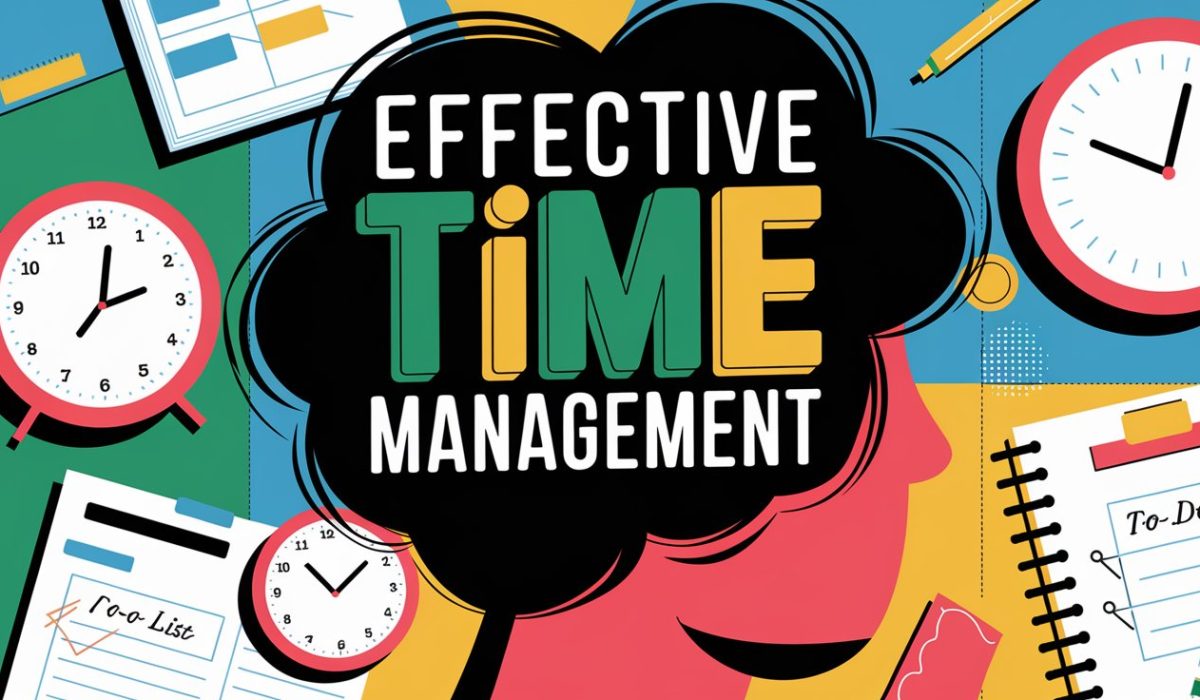Time Management Strategies: Maximize Your Productivity
Effective time management is essential for achieving your goals and reducing stress. With so many demands on our time, learning how to manage it effectively can lead to greater success in both your personal and professional life. Here are some practical strategies to help you make the most of your time.
1. Set Clear Goals
To manage your time effectively, start by setting clear and achievable goals. Define what you want to accomplish in the short term and long term. As a result, having specific objectives will guide your daily activities and help you prioritize tasks that align with your goals.
2. Prioritize Your Tasks
Once you have your goals in place, prioritize your tasks. Use the Eisenhower Matrix, which categorizes tasks into four quadrants based on urgency and importance. Focus on high-priority tasks that are both urgent and important. Consequently, this approach ensures you address what truly matters first.
3. Create a Daily Schedule
A daily schedule is a powerful tool for managing your time. Each morning, take a few minutes to plan your day. Allocate specific time slots for each task, including breaks. By following a structured schedule, you’ll stay focused and organized, reducing the likelihood of distractions.
4. Use Time Blocks
Time blocking is a technique that involves dedicating specific blocks of time to particular tasks. For example, you might reserve mornings for deep work and afternoons for meetings or emails. This method helps minimize multitasking, allowing you to concentrate fully on one task at a time.
5. Set Time Limits
Setting time limits for tasks can enhance your productivity. By creating a sense of urgency, you’re less likely to procrastinate. For instance, if you allocate 30 minutes to complete a report, you’ll be motivated to finish it within that timeframe. As a result, you can accomplish more in less time.
6. Learn to Say No
One of the biggest challenges in time management is overcommitting. To maintain your productivity, learn to say no to tasks or projects that do not align with your goals. By being selective about what you take on, you’ll have more time to focus on your priorities.
7. Eliminate Distractions
Distractions can derail your focus and waste valuable time. Identify common distractions in your environment and take steps to eliminate them. For example, consider turning off notifications on your phone or designating a quiet workspace. Consequently, you’ll find it easier to concentrate on your tasks.
8. Take Regular Breaks
While it may seem counterintuitive, taking regular breaks can improve your productivity. Short breaks allow your mind to rest and recharge, leading to increased focus and efficiency when you return to work. Consider using techniques like the Pomodoro Technique, where you work for 25 minutes and then take a 5-minute break.
9. Review and Reflect
At the end of each week, take time to review your progress. Reflect on what you accomplished, what worked well, and what could be improved. This practice helps you identify patterns in your time management and adjust your strategies accordingly.
10. Use Productivity Tools
Leverage technology to enhance your time management. There are numerous apps and tools available to help you organize tasks, set reminders, and track your time. For instance, tools like Trello or Todoist can streamline your task management and keep you accountable.
Conclusion
By implementing these time management strategies, you can take control of your schedule and boost your productivity. Remember, effective time management is a skill that takes practice. As you refine these strategies, you’ll find it easier to achieve your goals and create a balanced, fulfilling life.
